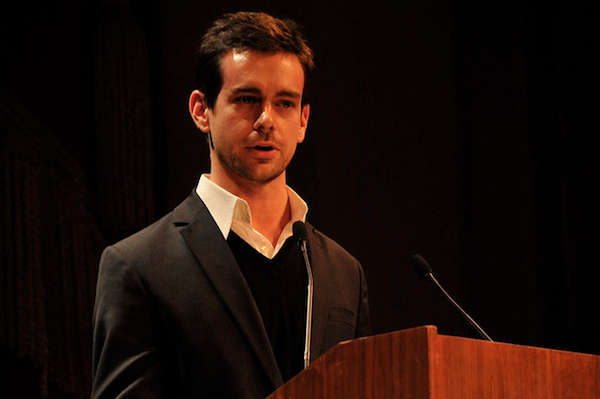Happy Birthday Twitter: A Look Back At The Company And Its Co-Founder Jack Dorsey


Can you even imagine a time when you didn’t have Facebook and Twitter, and an iPhone on which to view them both? In fact, that time wasn’t too long ago, and today marks the seventh year Twitter has been around. So who better to spotlight but one of Twitter’s founders, Jack Dorsey?
Dorsey spoke to a ton of entrepreneurs-to-be (maybe) at New York University a few weeks ago, and laughed a little when he mentioned he tried to complete a degree in computer science at that same university (and failed) less than a decade ago. Now not only did he co-found Twitter, the always buzzing and tweeting social media Web site, but he also founded the card payment app Square that is now compatible with Android and iPads. If you haven’t seen an iPad register yet, you’re seriously missing out, because they’re pretty freaking awesome.
Mr. Dorsey had an exclusive interview over with young entrepreneur a few weeks back. You can read the whole interview here — it’s actually not so boring and totally worth a read through — or you can read a couple of interesting facts about the man below.
The Rise… and… Rise… of Twitter
Dorsey was a young man in his early 30s when he started Twitter, but the Web site didn’t start out as “Twitter” – it started out as “Twttr,” which was pretty damn impossible to pronounce. Before the site launched, he added a few vowels and changed his crap logo which looked like a bunch of soda floating through some letter shaped balloons (good call, dude). Hipster Dorsey – who had spiky hair and a “come at me bro” in all known pictures of him at the time – didn’t put a whole lot of effort into marketing and, instead, let Twitter handle itself.
The roots of the success of Twitter started with the phrase “nom nom,” which has been used around two million times on Twitter alone. I think that’s mostly because people were confused on what to do with Twitter in the first place. So where did people turn? Food. Because food speaks for itself.
Then came the parody accounts, and when meteors and fake characters started Tweeting, all resistance of Twitter disappeared.
The Evil Mastermind Himself
You’re probably thinking, how did some punk college dropout manage to create not one masterpiece, but TWO? Even if Twitter fades out of existence, which it won’t because we are forever scarred with the word hashtag, people won’t forget about it. It’s going to be with us the rest of our lives.
So let’s take a quick look at his interview and figure out what exactly he did that was so awesome, that you might be able to do, too.
First, we should take a moment to see what he recommends for young entrepreneurs. He says that he thinks entrepreneurs are focused on the wrong things. Students come up to him and ask how they should meet people, how they should make money and how they should find the right people to work for them.
That’s all well and good, but he always turns around and asks them, “Have you actually started working on it, yet?”
Show people, don’t just tell them. It doesn’t matter if you think you have the most badass idea in the entire world. If you can’t show people something they can agree with, then who the hell is ever going to support you? If I came up to you and said, ‘Hey, there’s this weird microblogging Web site where you can only type 140 characters per post,’ you’d look at me funny. So don’t. You need to bust your ass first, so you have something to show for your effort, not just an idea.
Dorsey is also part of an organization called Build, which gives the tools of entrepreneurship to anyone who wants them. The program also encourages kids to stay in school and kick some major ass so maybe someday, they can do something big with themselves, too. But Dorsey doesn’t think it’s so much about getting kids to be entrepreneurs, but giving them courage.
Knowing that, be confident what you want to do is going to work. You don’t want to get cocky or anything, but showing that you have confidence in your idea will show others they should have confidence in your idea, as well. Why wouldn’t you want them to feel like you’re going to rock the world (so they’ll support you monetarily, too)?
And finally, Dorsey speaks of forgetting about solving someone else’s stupid ass problem and only trying to solve your own. This advice is so counter-intuitive for some that you might stop reading now, but this guy makes a really good point. Dorsey points out that you might only be solving your own problem – no money in your pockets, maybe – and that convincing others that this is also a problem in their lives is the way to form your own damn niche. You can build a team with this concept, and though you didn’t solve anyone’s PROBLEM, you gave people the desire to do something and then solved that desire. It’s outside of the box thinking, and it’s something every entrepreneur can gain oodles from learning about.
In the end, Dorsey is successful. And if you’re like me, you’d pay to be that successful, too. So why don’t you? Pay with your time, pay with your effort, and start making your idea work for you. Happy birthday, Twitter. May you have another seven years’ worth of a billion dollars in revenue.
[Image via Flickr/Brian Caldwell]









































